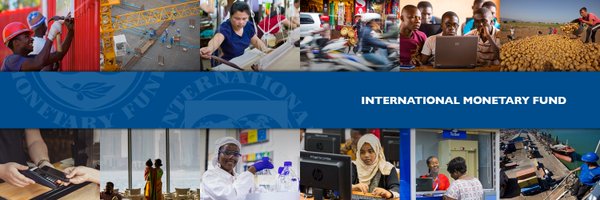 (AGENPARL) - Roma, 1 Luglio 2022
(AGENPARL) - Roma, 1 Luglio 2022(AGENPARL) – ven 01 luglio 2022 The latest IMF analysis of global economics, finance, development and policy issues shaping the world. []
[IMF Weekend Read]
Dear Colleague,
In today’s edition, we spotlight the gaps in regulation of the world’s capital markets, the US economy’s rapid recovery and recession risks, global debt and default dangers, Africa’s macroeconomic imbalances, the importance of price stability in Kazakhstan, climate learning, Argentina, Sri Lanka, and the winners and losers from job-switching in Europe.
Capital Markets
Why Countries Must Cooperate on Carbon Prices
(PHOTO: NIKADA/ISTOCK BY GETTY IMAGES)
Capital markets are like engines that help power the global economy: they perform best with regular tune-ups. But even after historic enhancements in recent years, countries still need to keep pushing to lower risks and strengthen the tools to manage future crises, and ultimately to reduce fluctuations tied to economic cycles.
–Emerging Challenges: As the authors say, “Emerging challenges like new market technology and a broadening of the regulatory perimeter make it important for regulators to have a wider range of specialist expertise and to ensure that their supervisory techniques and technology keep pace.”
“We must keep prioritizing our push to make further progress on these key aspects of the institutional and regulatory framework underpinning capital markets.”
United States
(PHOTO: IMF PHOTO)
“Most notably, there has been a significant acceleration in wage and price inflation. These pressures are now broad based and go well beyond increases in energy and food prices.”
According to the latest IMF projections, US economic growth is set to slow to 2.9 percent this year and 1.7 percent in 2023, after an estimated expansion of 5.7 percent in 2021.
“We are conscious that there is a narrowing path to avoiding a recession in the US,” Georgieva said.
(CREDIT: ISTOCK:NUTHAWUT SOMSUK)
Roch looks at the value of credible government commitment to future borrowing plans in the design of fiscal policy.
“Overall, these results are indicative of the quantitative importance of enhancing long-term fiscal discipline to reduce sovereign risk and for the success of fiscal programs aiming at reducing debt levels.”
Our June issue focuses on the economic dimensions of the current geopolitical situation, including the war in Ukraine, refugees, and food prices.
Authors include Tharman Shanmugaratnum, Pierre-Olivier Gourinchas, Eswar Prasad, Raj Chetty, Barry Eichengreen, Patricia Clavin, and many others, who examine the rare confluence of geopolitical, economic, and technological forces now confronting the world may reverberate for generations.
Want to get a print copy delivered to your home or office?
—————————————————————
(PHOTO: IMF PHOTO)
(PHOTO: IMF PHOTO)
(PHOTO: ISTOCK/OZBALCI)
(PHOTO: IMF PHOTO)
WEEKLY ROUND-UP
—————————————————————
[profile]
Nick Owen
Editor
IMF Weekend Read
Thank you again very much for your interest in the Weekend Read! Be sure to let us know what issues and trends we should have on our radar.
Connect on Social

